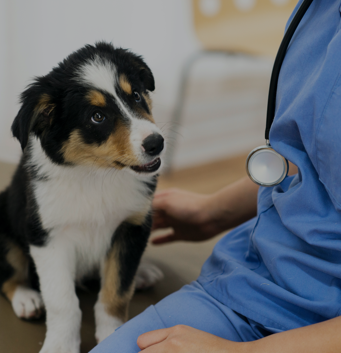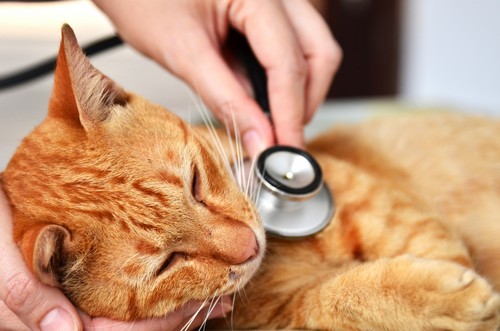After-hours Vet services that save lives when it matters most
Exactly How a Veterinary Specialty Hospital Can Cure Your Pet's Conditions With Advanced Techniques
Veterinary specialty hospitals play a vital function in attending to complex wellness issues in animals. They make use of sophisticated strategies and technologies that improve medical diagnosis and treatment. With access to specialized services, family pet proprietors can discover customized services for their animals' disorders. This elevates essential concerns about the particular approaches utilized and the benefits they supply. Comprehending these aspects can notably impact a pet's recuperation journey.
Recognizing the Role of Veterinary Specialty Hospitals
Main care vets supply necessary solutions for pet health and wellness, vet specialty hospitals play a vital duty in attending to complicated clinical problems that need sophisticated diagnostics and treatment. These facilities are geared up with specialized technology and knowledgeable experts who concentrate on details areas of veterinary medicine, such as neurology, oncology, and cardiology.
Veterinary specialty hospitals assist in a collective approach, commonly operating in combination with a pet dog's primary veterinarian to create extensive care strategies. They provide accessibility to sophisticated imaging techniques, such as MRI and CT checks, which are not normally available in typical facilities - Learn More. Additionally, these hospitals offer critical care unit for critically sick family pets, ensuring day-and-night monitoring and support
Specialized Services Offered by Veterinary Professionals
Veterinary experts provide crucial services that enhance pet dog healthcare, particularly through advanced analysis imaging methods. These devices allow precise assessments of complicated clinical problems, leading to extra efficient targeted therapy plans. By integrating these specialized services, veterinary hospitals can significantly boost patient results and general well-being.
Advanced Diagnostic Imaging
Advanced diagnostic imaging plays a vital duty in contemporary vet medicine, allowing experts to obtain thorough understandings into a family pet's health and wellness. Methods such as X-rays, ultrasound, calculated tomography (CT), and magnetic resonance imaging (MRI) permit vets to imagine inner structures without intrusive treatments. These advanced imaging methods help in diagnosing a selection of conditions, from cracks and tumors to organ problems. By supplying clear pictures, they boost the precision of evaluations, which is vital for effective therapy preparation. In addition, specialized vet radiologists analyze these photos, guaranteeing that refined problems are not ignored. Ultimately, advanced analysis imaging is critical in providing comprehensive treatment, as it enables very early detection and treatment in a pet dog's clinical problems.
Targeted Therapy Strategies
Targeted treatment plans are important for resolving the particular wellness needs of animals, guaranteeing that each animal obtains customized care tailored to its distinct problem. Veterinary professionals create these plans based upon extensive assessments, including advanced analysis imaging and laboratory examinations. By concentrating on the individual pet dog's diagnosis, lifestyle, breed, and age, experts can recommend effective treatments, ranging from drug changes to surgical treatments. These strategies also integrate follow-up care and checking to track the animal's development and make essential adjustments. This strategy promotes ideal results and boosts the general top quality of life for pet dogs encountering complicated wellness challenges. Ultimately, targeted therapy plans stand for a commitment to offering the highest possible requirement of veterinary treatment.
Advanced Diagnostic Techniques for Accurate Diagnoses
As pet dogs encounter increasingly intricate health and wellness challenges, the assimilation of sophisticated analysis techniques has ended up being crucial for attaining exact diagnoses. Veterinary specialty hospitals utilize state-of-the-art imaging technologies, such as MRI and CT checks, to visualize inner frameworks with impressive clarity. These methods allow vets to determine problems that might not be noticeable via typical methods.
In enhancement to imaging, progressed research laboratory tests, consisting of hereditary and biomarker analyses, give vital understandings into underlying conditions. These examinations make it possible for veterinarians to find diseases at earlier stages, promoting prompt intervention (Learn More). The use of endoscopy permits for direct visualization of inner organs, helping in the diagnosis of gastrointestinal and breathing problems.
Cutting-edge Treatment Choices for Complicated Conditions
Innovative treatment choices for complicated problems in pet dogs have arised as a vital focus within veterinary specialty hospitals. Making use of sophisticated analysis devices, these centers boost their capability to recognize problems accurately and customize suitable interventions. Additionally, the implementation of minimally intrusive procedures and progressed rehab strategies offers pets a much better opportunity at recovery with decreased pain.
Cutting-edge Diagnostic Devices
While the landscape of veterinary medicine proceeds to evolve, innovative diagnostic tools have actually arised as crucial possessions for dealing with intricate conditions in pet dogs. These sophisticated innovations, including electronic imaging, ultrasound, and molecular diagnostics, enable veterinarians to get specific information about an animal's health condition rapidly. For instance, high-resolution imaging strategies can expose detailed information of internal frameworks, enabling accurate evaluations of injuries or conditions. Furthermore, hereditary testing supplies insights right into genetic conditions, guiding customized therapy plans. By leveraging these ingenious diagnostic devices, veterinary specialty hospitals can enhance their capacity to recognize conditions that may have formerly gone undiscovered. Inevitably, these improvements add to improved results and enhance the general top quality of treatment supplied to cherished pet dogs.
Minimally Intrusive Treatments
Advancements in vet medicine have led the way for minimally intrusive treatments, which supply new therapy choices for complex problems in pets. These innovative techniques, such as laparoscopy and endoscopy, enable veterinarians to do surgeries with smaller sized cuts, lowering trauma and healing time. By utilizing specialized tools and electronic cameras, veterinarians can detect and deal with problems like growths, food poisonings, and joint troubles with precision. This method lessens discomfort and brings about quicker healing, making it possible for pet dogs to go back to their normal tasks quicker. Veterinary. In enhancement, minimally invasive procedures frequently result in less scarring and a reduced danger of problems. As vet specialty hospitals adopt these innovative techniques, family pet owners can really feel more certain in their pets' treatment and overall health
Advanced Rehab Techniques
As veterinary medicine progresses, progressed rehabilitation methods are becoming crucial for taking care of complicated problems in animals. These techniques encompass a series of ingenious therapy alternatives, including hydrotherapy, laser treatment, and physical treatment. Hydrotherapy uses water resistance to enhance mobility and enhance muscles, valuable for pet dogs recouping from surgery or injury. Laser treatment advertises healing by decreasing inflammation and discomfort, cultivating quicker recovery times. Physical treatment utilizes targeted exercises to enhance toughness and versatility, customized to each family pet's specific needs. Furthermore, methods like acupuncture and chiropractic changes can additionally sustain rehab by minimizing discomfort and improving general well-being. Veterinary specialty hospitals are progressively integrating these methods, guaranteeing pet dogs receive detailed treatment that resolves both emotional and physical recovery, inevitably improving their high quality of life.
The Significance of a Multidisciplinary Strategy
A multidisciplinary approach in vet care greatly enhances the treatment outcomes for family pets, as it integrates expertise from numerous specialties to attend to complex wellness issues. This collective method involves veterinarians, experts, specialists, and support personnel collaborating to formulate comprehensive therapy strategies tailored to every animal's distinct demands (Veterinary). By incorporating understanding from fields such as surgery, interior medication, oncology, and rehab, veterinarians can identify underlying problems that might otherwise go unnoticed
Moreover, this strategy promotes interaction among staff member, making certain that all aspects of a family pet's health and wellness are taken into consideration. For instance, a pet dog recouping from surgery might gain from input from both a specialist and a rehabilitation expert, leading to a much more reliable recuperation process. Ultimately, a multidisciplinary approach not only enhances the top quality of care yet additionally enhances the total wellness of animals, supplying them with the most effective chance for an effective recovery and long-term site here health.
Cutting-Edge Modern Technology in Veterinary Medication

With the quick evolution of innovation, vet medicine has actually embraced ingenious devices and methods that significantly boost diagnostics and treatment alternatives for pet dogs. Advanced imaging innovations, such as MRI and CT scans, enable vets to visualize internal structures with extraordinary clearness, assisting in precise medical diagnoses. Furthermore, minimally invasive medical techniques, supported by robotic-assisted systems, improve accuracy and decrease healing times for animals.
Telemedicine has actually also become an important source, making it possible for veterinarians to talk to family pet proprietors remotely, thus facilitating timely interventions. Furthermore, the assimilation of synthetic intelligence in evaluating medical information adds to much more effective treatment strategies tailored to specific demands. Advanced laboratory equipment enables fast blood evaluation and virus discovery, fostering prompt medical reactions. As vet specialty hospitals remain to include these advancements, they not only improve the high quality of care but likewise substantially improve the total wellness of pet dogs.
Success Stories: Real-Life Instances of Pet Dog Healing
Numerous heartwarming success tales highlight the amazing recuperations of pet dogs treated at veterinary specialty hospitals. One such situation included Bella, a Golden Retriever diagnosed with a severe orthopedic problem. After innovative surgical treatment and recovery, Bella was not just able to walk once more however additionally to run happily in the park, much to her owners' pleasure.
One more motivating story features Max, a cat with persistent kidney illness. Through specialized dietary management and ingenious therapies, Max's problem supported, permitting him to reclaim his energy and cravings. His proprietors were satisfied to see him go back to his lively self.

Regularly Asked Inquiries
What Should I Expect During My Family pet's Specialty Examination?
Throughout a specialty assessment, pet owners can anticipate an extensive exam, comprehensive medical background discussions, diagnostic examinations, and tailored therapy choices. The veterinary specialist will certainly offer understandings and suggestions for the animal's specific wellness requirements.
Just How Can I Locate a Veterinary Specialty Hospital Near Me?
To locate a veterinary specialty hospital close by, one can utilize online online search engine, check regional directory sites, or seek suggestions from primary vets. Additionally, family pet owner online forums can offer valuable insights and experiences concerning close-by facilities.
Are Specialty Solutions Covered by Pet Dog Insurance Coverage?
Specialty services might be covered by pet insurance policy, but protection differs by plan. Owners should meticulously evaluate their insurance coverage strategy information and consult their service provider to understand the extent of protection for specialty vet solutions.

Just How Long Will My Animal's Treatment Take?
The period of a pet's treatment can vary substantially, often ranging from a couple of days to numerous weeks - Veterinary. Elements affecting this timeline consist of the certain problem, treatment kind, and the family pet's total wellness and response
What Are the Costs Connected With Specialty Veterinary Treatment?
The prices related to specialty vet treatment can differ commonly, commonly varying from hundreds to hundreds of bucks. Aspects affecting these expenses include the intricacy of the problem, called for therapies, and diagnostic treatments required for efficient care.
Veterinary specialty hospitals play a crucial role in attending to intricate health and wellness concerns in pet dogs. Key care veterinarians offer vital services for pet health, vet specialty hospitals play a crucial role in addressing intricate clinical conditions that require sophisticated diagnostics and treatment. Veterinary specialty hospitals facilitate a joint technique, typically working in combination with an animal's primary vet to produce extensive treatment strategies. Innovative therapy options for intricate conditions in pet dogs have emerged as a critical focus within vet specialty hospitals. A multidisciplinary technique in vet treatment considerably improves the therapy results for animals, as it incorporates knowledge from various specializeds to resolve complex wellness problems.